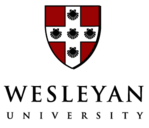 The Wesleyan Argus was founded in 1868 and is the country’s oldest twice-weekly printed college newspaper. Its editorial is under the direction of undergraduate students at the liberal arts institution in Middletown, Connecticut, and the university does not control its content and is not responsible for any opinions expressed in the student newspaper.
The Wesleyan Argus was founded in 1868 and is the country’s oldest twice-weekly printed college newspaper. Its editorial is under the direction of undergraduate students at the liberal arts institution in Middletown, Connecticut, and the university does not control its content and is not responsible for any opinions expressed in the student newspaper.
Earlier this month, the paper published an opinion piece entitled “Why Black Lives Matter Isn’t What You Think.” In the piece, a staff writer concludes: “At some point Black Lives Matter is going to be confronted with an uncomfortable question, if they haven’t already begun asking it: Is this all worth it? Is it worth another riot that destroys a downtown district? Another death, another massacre? At what point will Black Lives Matter go back to the drawing table and rethink how they are approaching the problem?”
The piece prompted protests on campus. A petition was circulated calling for the student government to end funding of the newspaper and for staff members to undergo diversity training. But Wesleyan President Michael Roth issued a statement defending free speech which said in part, “Debates can raise intense emotions but that doesn’t mean that we should demand ideological conformity because people are made uncomfortable. As members of a university community, we always have the right to respond with our own opinions, but there is no right not to be offended. Censorship diminishes true diversity or thinking; vigorous debate enlivens and instructs.”
The newspaper rallied around the free speech issue while its leaders admitted that they needed to do a better job including the opinions and perspectives of minority groups on campus. The co-editors of the student newspaper wrote a piece three days after the original article was published saying “we want to affirm that as community members, we stand in solidarity with the Black Lives Matter movement. As we grapple with the knowledge that we have caused our community deep pain, we reflect upon and reconsider the way our publication functions. The system under which The Argus operates is inherently flawed; we’ve made it our mission to examine these flaws closely and do our best to rectify them.”










